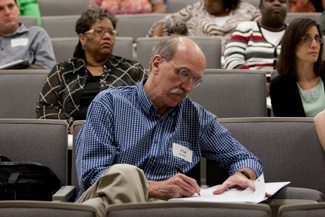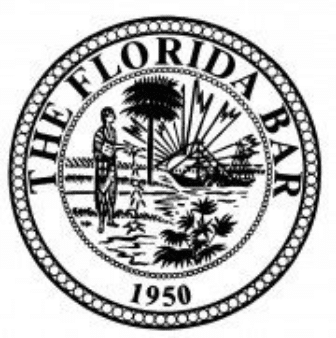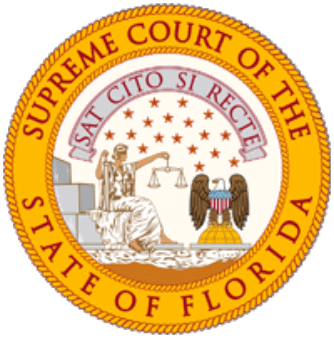by Nancy Kinnally

If he’d gotten into a fight at school just a couple of years ago, Escambia County eighth-grader K.P. could have easily been looking at out-of-school suspension or even criminal sanctions.
Today, the district is instead giving students like K.P. the chance to make amends and work through the issues that led to their misbehavior while remaining in school. The ultimate goal is to achieve restorative justice and stem the flow of youth into jail for minor infractions that need not have been criminalized.
The Escambia County Alternative Discipline Restorative Justice Initiative is funded in part by an annually renewable Foundation grant of up to $945,000 total, spread over three years ending in 2012. Administration and oversight are provided by the Collins Center for Public Policy.
In 2007-08, the Escambia County School District issued out-of-school suspensions to nearly 22 percent of its 8,829 middle school students, and in 2008-09 it expelled 59 middle school and 75 high school students. That same year, 24 percent of Escambia County referrals to the Florida Department of Juvenile Justice were school-related. The hope is that by the end of the grant period, those numbers will have been significantly reduced while schools have remained safe.
For K.P., who had never been in trouble before getting into a scuffle with a classmate last year, the program has meant not only a second chance, but an opportunity to improve himself.
“I’m here because I want to put back into the school what the kids have lost, part of their education time,” K.P. said. “I learned from this mistake, and I gained experience, and now I know that I have to control myself more and handle the situation better and think about what I’m going to do.”
It’s hard to imagine K.P. would have gained that same kind of insight from a few days of out-of-school suspension.
Escambia County Schools Superintendent Malcolm Thomas believes that out-of-school suspensions disrupt a student’s education and cause problems for working parents. He has so far put the alternative program in place at four of the district’s nine middle schools and one high school. He hopes eventually to incorporate the purely voluntary program into every secondary school in the district and make it an integral part of disciplinary policies even after the grant runs out.
Through a trained School Accountability Board, the program brings together the offending student and those adversely impacted by the student’s actions. The parents and guardians of the students and victims, along with school officials and community members, work with the students to determine how to repair any harm that has been done and help the parties move forward.
Sixth-grade teacher Jim Cannon, who has been a mediator and an attorney, said he sees the program as having much in common with mediation.
“What I see this program doing is giving everybody an opportunity to speak and to listen and to be heard, perhaps in some cases for the very first time. And I found that as a mediator, that was probably the solution to many of the problems that we encountered. For the first time the person was heard, and not only was heard but had the opportunity to take ownership in the solution to the problem.”
The Collins Center is working with Escambia school district officials to document and evaluate the program’s success.
Collins Center President Rod Petrey sees Escambia County’s approach as an important step toward developing new models for compliance with legislation passed in 2009 requiring Florida school boards to revise their zero-tolerance policies to ensure that students not posing a serious threat to school safety are not expelled or arrested for petty misconduct.
“Escambia County is the testing ground to show how recent changes in Florida law can actually be implemented in a real working school system,” Petrey said.
Florida Bar Foundation board member Donna Krusbe of West Palm Beach participated in a meeting in Pensacola with representatives of the school district, the Collins Center and the Foundation to review the program’s progress during the first year of the grant.
“I really see a lot of promise in what they have achieved so far,” Krusbe said. “It is our hope that the cooperative effort of the school district and the community will reach well beyond Escambia County. In the end, we hope to see the development and implementation of a successful program that can be emulated throughout the state. I am proud that the Foundation is able to fill the gap in government funding and underwrite this program that is so vital to the well-being of our children and schools.”




